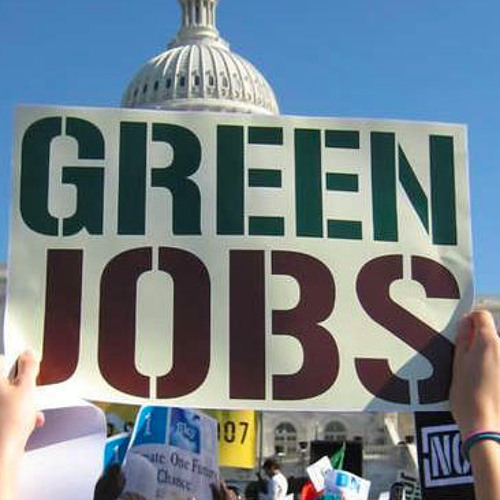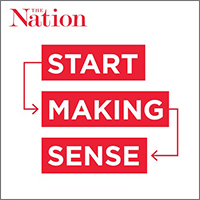 Listen HERE
Listen HERE
How will the American war in Afghanistan end? Probably like the American war in Southeast Asia–that’s what Andrew Bacevich says– he’s Professor Emeritus of International Relations and History at Boston University.
Next up: A new labor law has passed in the state of California, requiring that gig workers at Uber, Lyft and elsewhere be classified as employees — how big a deal is it? Harold Meyerson of the American Prospect explains.
Also: Who is “Un-American”? We talk with David Maraniss, author of the new book, “A Good American Family: The Red Scare and My Father”. 9/12/19
Why the Koch Brothers Don’t Support Trump: Christopher Leonard on “Kochland,” plus Joan Walsh on Indivisible
 Listen HERE
Listen HERE
How the Koch brothers transformed an obscure oil company based in Wichita into a $110 billion colossus, and reshaped the Republican Party—but failed to prevent Trump from becoming president: Christopher Leonard on Kochland: The Secret History of Koch Industries and Corporate Power in America.
Also: Indivisible, the big network of local Democratic Party activists that sprang up after Trump’s victory, faces a big challenge: whether to endorse a candidate in the Democratic Primaries. Joan Walsh reports on the conflict between the Washington headquarters of the organization and the hundreds of grassroots groups. 9/5/19
The Problems with Biden on Labor & Climate: Harold Meyerson; Amy Wilentz on Melania; Educating girls in Afghanistan
 Listen HERE
Listen HERE
Democratic candidates debated climate change last night on CNN and we’re especially interested in what the front-runner in the polls, Joe Biden, had to say; also, a new labor bill that could determine the future of the gig economy — for comment, we turn to Harold Meyerson.
Next up: Is Melania Trump a secret hero of the people– or an accomplice of evil? Amy Wilentz explains.
Also: Sola means “peace” in Pashto; and SOLA (The School of Leadership, Afghanistan)is the first and only boarding school for girls in Kabul; we talk with the school’s founder, Shabana Basij-Rasikh about the future of girls’ education in Afghanistan after an American pullout. 9-5-19
The White Power Movement From Reagan to Trump
 Jon Wiener: El Paso,Christchurch, Charleston: the attackers have all been described as loners. You say they are all connected. How?
Jon Wiener: El Paso,Christchurch, Charleston: the attackers have all been described as loners. You say they are all connected. How?
Kathleen Belew: We’re talking here about the White Power movement, a coalition that includes Klan groups, neo-Nazi groups, skinheads, and other activists. One of their key tactics is called leaderless resistance—a few people work in a cell without direct communication with other cells and without direct orders from leadership. This strategy was implemented to stymie infiltration efforts and prosecution. But there’s been a much larger and more damaging legacy: It has effectively erased this entire movement as a movement, so what we see instead are a series of stories about lone wolf attackers, acts of violence that are inexplicable and unrelated to each other. . . . continued at TheNation.com, HERE 9/3/19
The White Power Movement after El Paso: Kathleen Belew on domestic terrorism, plus Davis Maraniss on HUAC
Listen HERE
We’re still thinking about the terrorist attack in El Paso, where 22 people were killed at a Walmart and two dozen more were injured. Like almost all of these attacks, the El Paso killings have been treated as an isolated event carried out by a loner. But the attacks in Charleston, Charlottesville, Christchurch, El Paso and elsewhere are connected; they are all part of the White Power movement, with roots going back to the 1970s. That’s what Kathleen Belew says — she writes for the New York Times op-ed page, she teaches history at the University of Chicago, and she’s the author of the book “Bring the War Home: The White Power Movement and Paramilitary America,” it’s out now in paperback.
Also: HUAC is history; the heyday of the House Un=American Activities Committee was the 1950s. But we’re still concerned about government attacks on people, and groups– called “Un-American.” David Maraniss has been thinking about that history – his father was called before HUAC in 1952 and then blacklisted from his job as a newspaper editor. His new book is “A Good American Family: The Red Scare and My Father.” 8/29/19
The Green New Deal & Labor: Harold Meyerson; Trump’s Polls: Jeet Heer; J. Hoberman on Movies and Reagan
 Listen HERE
Listen HERE
In Los Angeles, a local of the electrical workers, the IBEW, has blocked the city from signing a deal for the cheapest solar power in history – and has been running ads on TV opposing the mayor’s Green New Deal proposal to move to renewable energy. A similar dynamic is underway in northern Minnesota, where the Building Trades unions are supporting a pipeline that would bring crude from the terrible Alberta Tar Sands to the port of Superior/Duluth–“Enbridge Line 3,” which is opposed by Elizabeth Warren–in her biggest campaign appearance to date, at Macalester College in St. Paul. Harold Meyerson comments — and points to the unions that support the Green New Deal.
Also: Trump is trailing badly in the polls–so how does he think he can win? Jeet Heer explains.
Plus: Star Wars, Ghost Busters, Rocky and Dirty Harry — we talk with J. Hoberman author of “Make My Day: Movie Culture in the Age of Reagan”. 8/29/19
Trump’s Terrible Poll Numbers: Jeet Heer on the campaign, plus J. Hoberman on Reagan and the movies
 Listen HERE
Listen HERE
The latest polls—including the highly respected Fox poll—show Trump in terrible shape at this point: Among registered voters he trails Biden 50-38, Bernie 48-39, Elizabeth Warren 46-39, and even Kamala Harris 45-39. He’s losing crucial segments of his 2016 base. And in many of the states he carried last time, he’s deep into negative territory on the approval polls. Jeet Heer comments—and takes up the question, how does he think he can win?
Also: The synergy between politics and popular culture has never been clearer or stronger than in the Age of Reagan—and now there’s a wonderful new book on “movie culture in the Age of Reagan”—it’s called Make My Day, by J. Hoberman; for thirty years he was a film critic for the Village Voice. He talks about Dirty Harry, Star Wars, Rambo, and Ghostbusters—and how Trump compares with Reagan, pointing to Howard Beale in Network and to Rocky’s racist happy ending. 8/21/19
DSA says ‘Bernie or Bust’: Meyerson; Katha on Jeffrey Epstein; Nichols on White Nationalism
/cdn.vox-cdn.com/uploads/chorus_image/image/63084688/gnd_press_conf_sunrise.0.jpeg) Listen HERE
Listen HERE
If Bernie does NOT get the nomination, the Democratic Socialists of America will not endorse the Democrat who does. “Bernie or Bust” was what they decided at their recent convention – but is that a good idea? Harold Meyerson comments–he’s editor-at-large of The American Prospect and a regular contributor to the LA Times op-ed page.
Also: Jeffrey Epstein, the convicted pedophile and accused sex trafficker – who surrounded himself with an elite network of political leaders, wannabe billionaire types, and even scientists – and who committed suicide. Katha Pollitt considers the people who have been named in court documents as having accepted invitations from Jeffrey Epstein and also had sex with the underage girls he provided.
Plus: After the El Paso killings by a white nationalist–Tucker Carlson said on Fox news that white supremacy was “not a real problem in America.” He called it “a hoax, just like the Russia hoax.” John Nichols examines the history of white nationalism in recent American politics, going back to the election of Barack Obama. 8/22/19
Taking it to the Streets: Katha Pollitt; plus D.D. Guttenplan: the Green New Deal: Our Moonshot; and Pico Iyer on Peter Matthiessen
 Listen HERE
Listen HERE
Trump gets worse every week. Two years ago we had massive nationwide protest demonstrations — so why don’t more people take it to the streets these days? Nation columnist Katha Pollitt has been thinking about that.
Plus: last month was the 50th anniversary of Americans walking on the moon-what would it take to get a similar mobilization today of money & effort—and vision–-to combat climate change? D.D. Guttenplan comments – he’s editor of The Nation.
Also: Fifteen Minutes without Trump – we want to take a brief break from Trump Talk, and instead,we want to talk about a trek in the Himalayas –
would you call that taking a break from Trump? We spoke with Pico Iyer about Peter Mattheson’s exploration of suffering, impermanence, and beauty in his classic book The Snow Leopard — it’s out now in paperback. 8/15/19
Bernie or Bust? Harold Meyerson on DSA, plus Katha Pollitt on Jeffrey Epstein and John Nichols on White Nationalism
 Listen HERE
Listen HERE
If Bernie does NOT get the nomination, the Democratic Socialists of America will not endorse the Democrat who does. “Bernie or Bust” was what they decided at their recent convention – but is that a good idea? Harold Meyerson comments–he’s editor-at-large of The American Prospect and a regular contributor to the LA Times op-ed page.
Also: Jeffrey Epstein, the convicted pedophile and accused sex trafficker – who surrounded himself with an elite network of political leaders, wannabe billionaire types, and even scientists – and who committed suicide over the weekend. Katha Pollitt considers the people who have been named in court documents as having accepted invitations from Jeffrey Epstein and also had sex with the underage girls he provided.
Plus: Last week—after the El Paso killings by a white nationalist–Tucker Carlson said on Fox news that white supremacy was “not a real problem in America.” He called it “a hoax, just like the Russia hoax.” John Nichols examines the history of white nationalism in recent American politics, going back to the election of Barack Obama. 8/14/19

